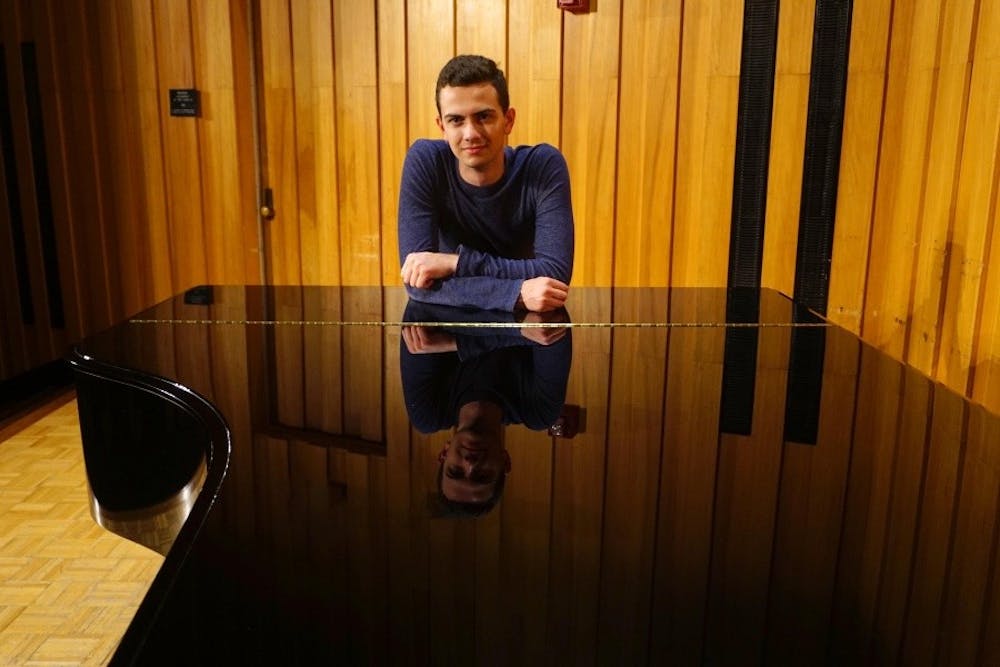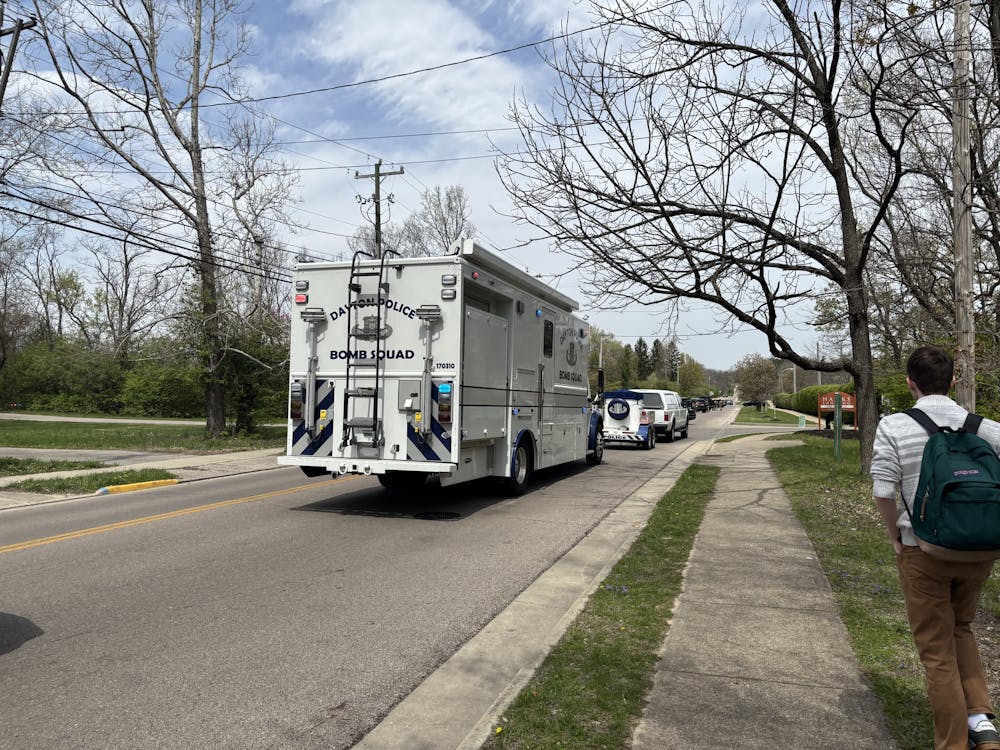By Megan Zahneis, News Editor
"Where are you from?"
When college students initially meet, that's usually the first question they ask.
Andrew Higgins can answer that one. He's from Cleveland.
It's the next question that makes him hesitate.
"What's your major?"
The response that the Miami University junior offers depends largely on context.
In a biology lab? In that case, he says he's a psychology major. At Glee Club? He's studying music composition.
The thing is, both answers are technically correct. So are three others. Higgins has undertaken the seemingly impossible by declaring five majors, too many to even display on his DARS: psychology, biology, neuroscience, premedical studies and music composition, with a piano performance minor to boot.
(Higgins feels compelled to note that two of his majors are, technically speaking, co-majors.)
Higgins enrolled in 11 classes, totaling 27 credit hours, this semester. For comparison, Miami requires students to take a minimum of 12 credit hours, which amounts to about four courses.
The trim, dark-haired Higgins prefers to keep his full slate "on the down-low," as he puts it. When he has no choice but to deliver the spiel, he knows what he'll hear next.
Enjoy what you're reading?
Signup for our newsletter
"There is this general [reaction of], 'Oh, okay, cool,' but also at the same time, 'What are you doing?'" Higgins said, miming the incredulity of the average student. "[They're] not necessarily puzzled, but like, 'Why?'"
It will take Higgins an extra year to graduate, partially because he only recently picked up his fifth and final major in music composition. When he gets his degree, he'll be turning his tassel on about 220 credit hours' worth of work.
That workload means long days. Higgins said he wakes up at 7:40 a.m. and attends classes from 8:30 a.m. to as late as 8:15 p.m., depending on the day. Between volunteering, an internship, Glee Club and piano practice, he rarely returns to his dorm before midnight. Then he does homework until 3 a.m., getting 4 hours and 40 minutes of sleep before the cycle starts anew. Sometimes, Higgins said, he forgets to eat dinner.
So why does Higgins put himself through this? Efficiency, he said.
Maximizing his learning is Higgins' goal in life, one that was inspired by observing a high-school friend who read voraciously.
"'He is just learning so much, when I could be as well," Higgins thought at the time. "But I'm just choosing not to."
Now he does.
"It's just cool being able to talk to one person about psych and at the same time [I] could just go to the music building and start talking about music," Higgins said.
And while planning his weekly schedule can be overwhelming, Higgins says being busy makes him more productive. Less time to procrastinate, his thinking goes, means more time to focus.
For Higgins, who hopes to parlay his studies into a career in psychiatry, it's about making an impact.
He also volunteers as a trained advocate with the Cincinnati-based empowerment agency Women Helping Women, serves as secretary of Miami's Stage Left theatre group and pulls a six-hour shift every Friday night at a suicide hotline call center in Hamilton.
"[We've] got a limited time on this earth, and there is so much to be done and so much a person can really do," Higgins said. "If you can set yourself up where you can do as much as you can and still be able to do it consistently, that's really what I strive for among anything else."




